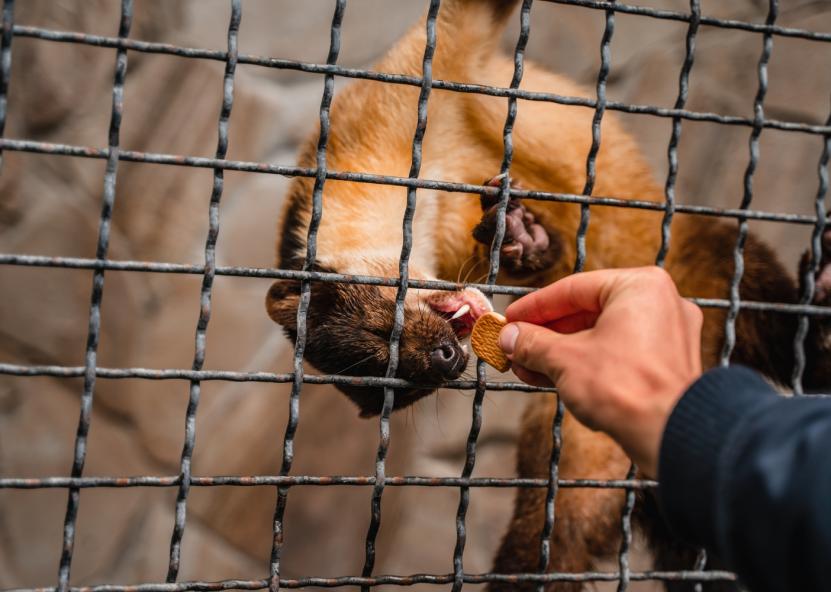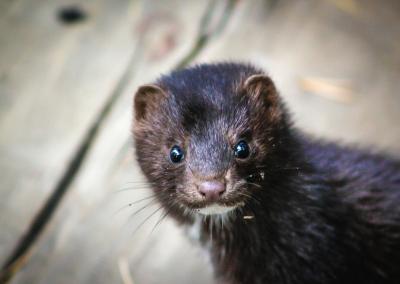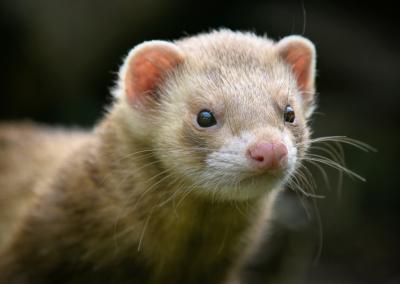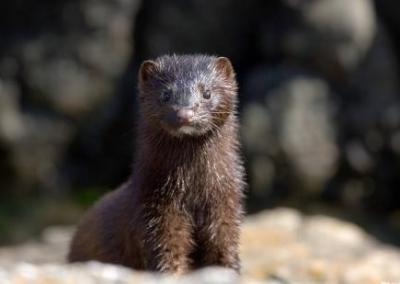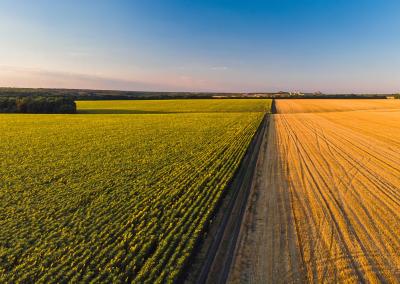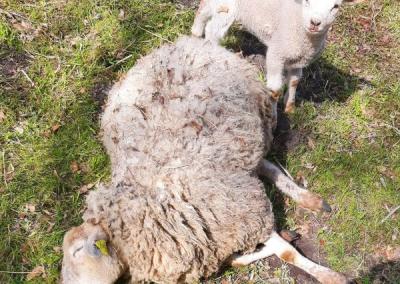Consideration to be given to paying compensation to fur farms that have defaulted on their loans
The Parliament is considering whether to make it easier for fur farms that are closing down to receive state compensation – to extend it to those who have not yet paid back their soft loans.
Parliament on Tuesday approved, after tabling, amendments tabled by the government proposing to extend compensation to those who have not yet repaid loans granted under the Covid-19 or the financial measures for the liquidation of the consequences of Russian aggression.
The amendments to the Animal Welfare and Protection Act were approved by 86 MPs, with seven abstentions.
„The proposed amendment would allow these entities to receive compensation if they cease operations before the repayment deadline of the preferential credit“,“ said the interim Minister of Agriculture, Ignas Hofmanas, while presenting the amendments in the Parliament.
Now, farms that go out of business cannot receive compensation for closure and demolition of buildings, destruction of facilities and waste management if they have not repaid these loans.
I. Hofman called for additional funding for the compensation, which he called "bullying of people who were in business"
.„Parliament has the right to ban this or that farm in accordance with the will of the people, but this should be done in a civilised way, because the farms were engaged in perfectly legitimate activities, and many of them were also receiving support from the European Union“,– said Mr. Hofman.
Conservative Aistė Gedvilienė hoped that the amendments would „completely fix“ the issue of the furbearer ban.
According to I. Hofman, there are now eight fur farms left in Lithuania, three of which are large.
„Valstietis“ Bronis Ropė said that the previous Seimas had acted very childishly when adopting the fur-bearer ban: „They made a decision to ban it, and then, as God wills.“
Parliament on Tuesday removed from the agenda a proposal by Liberal Viktoras Pranckietis to postpone the ban on furbearers for two years until 2029.
The CC ruled in March this year that the ban on the furbearer business enacted by the last parliament did not contradict the country's basic law.
The National Paying Agency (NPA) told BNS in August that it had received six applications for compensation.
Only this year, two applications have been received – one claimant was paid €1.7 thousand for 850 game animals and the second – €261.2 thousand for 87,000 animals raised on three farms. Last year, almost EUR 11 000 were paid to three owners of farms for 3,66 000 animals. In addition, one application was rejected because it was submitted by a farm that had not ceased its activity.
According to the Law on Animal Welfare and Protection adopted by the Parliament, fur farms in Lithuania will cease to exist from 2027.



































































































